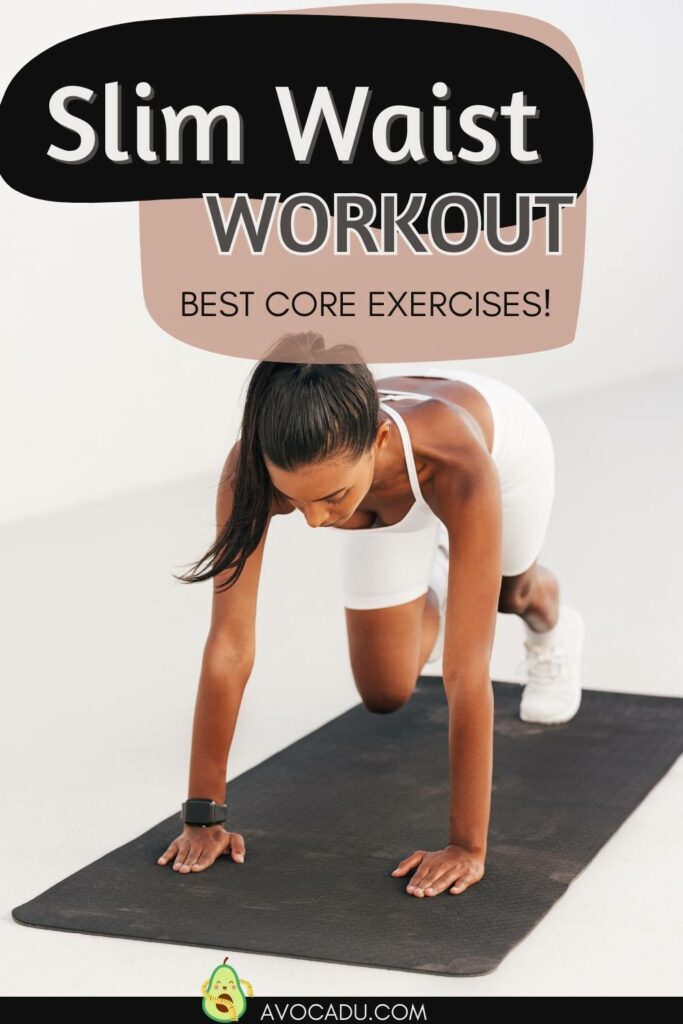This post may contain affiliate links, which helps keep this content free. Please read our disclosure for more info.
Dreaming of a sculpted waist and impressive core strength? You’ve landed in the perfect spot!
While there’s no magical quick fix to slim your waist, a combination of targeted exercises and wholesome eating habits can set you on the path to your dream midsection.
And hey, the journey there is packed with benefits beyond just aesthetics—improved posture, boosted athletic performance, and a solid defense against back pain to name just a few..
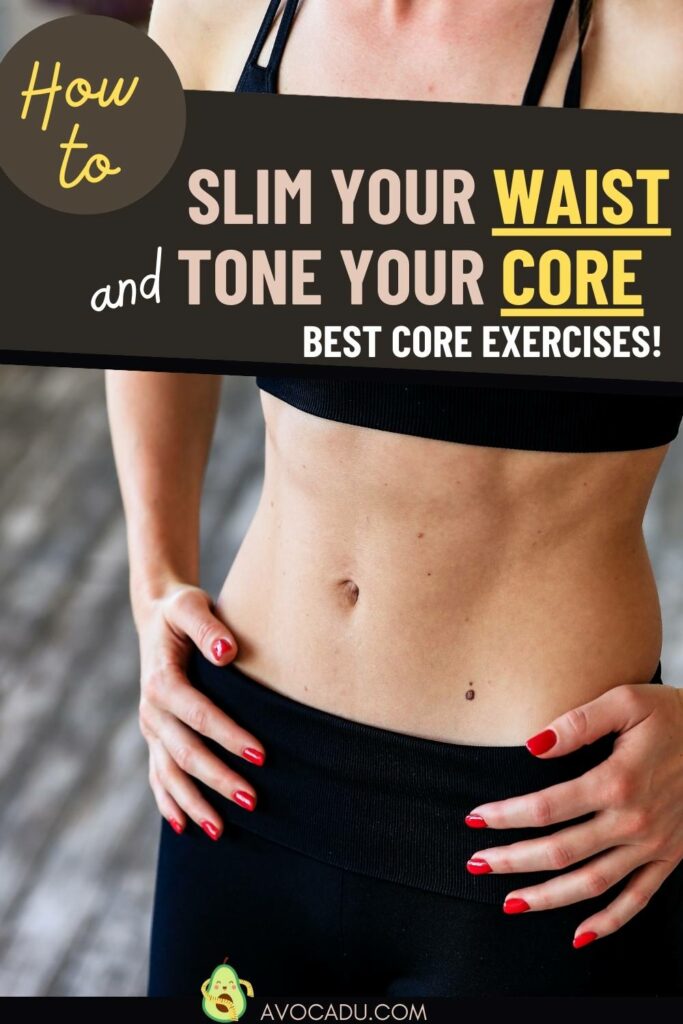
Understanding Your Core: The Powerhouse Muscles
Your core is more than just your abs. It’s a complex system of muscles that extends far beyond the six-pack (rectus abdominis) that gets all the glory. Here’s a rundown of the major players in your core team:
- Rectus Abdominis: Located at the front of your abdomen, this is the muscle most people think of when they imagine abs. It’s responsible for bending your spine forward (flexion) and plays a key role in movements like crunches.
- Transverse Abdominis (TVA): The deepest layer of abdominal muscles, the TVA wraps around your sides and spine, acting like a corset. It stabilizes the core and maintains internal abdominal pressure.
- Obliques (Internal and External): These muscles run diagonally across your side and front. The internal obliques lie under the external ones. Together, they assist in rotating the spine, lateral flexion (side-bending), and play a crucial role in stabilizing the abdomen.
- Erector Spinae: A group of muscles and tendons that run along your spine. They’re crucial for maintaining good posture and supporting the spine during movement, including bending and extending the back.
- Multifidus: This muscle runs along the spinal column, deep in the back. It’s essential for spinal stability, helping to take pressure off the vertebral discs and prevent injuries.
- Diaphragm: While primarily known for its role in breathing, the diaphragm also acts as a top cover for the abdominal cavity, contributing to core stability and intra-abdominal pressure.
- Pelvic Floor Muscles: These muscles form the base of the core and support the pelvic organs. They work with the rest of the core muscles to maintain intra-abdominal pressure and stability.
Why a Strong Core Matters
A robust core is the foundation of all bodily movements. It stabilizes your torso, protects your spine during activities, and transfers power between your upper and lower body.
Whether you’re lifting groceries, running, or performing complex athletic movements, a strong core makes everything safer and more efficient.
A well-trained core can improve your posture, reduce the risk of back pain, and enhance your performance in sports and daily activities.
It’s not just about aesthetics; it’s about building a body that functions effectively and efficiently in every aspect of life.
Engaging Your Core
To get the most out of your core workouts, focus on engaging these muscles consciously.
Whether you’re performing a plank or lifting weights, think about stabilizing your core to maximize the effectiveness of the exercise and protect your spine.
Over time, this mindful engagement will become second nature, enhancing your strength, stability, and overall performance.
Each exercise below is tailored to activate your core muscles, contributing to a stronger, more toned core.
Plank
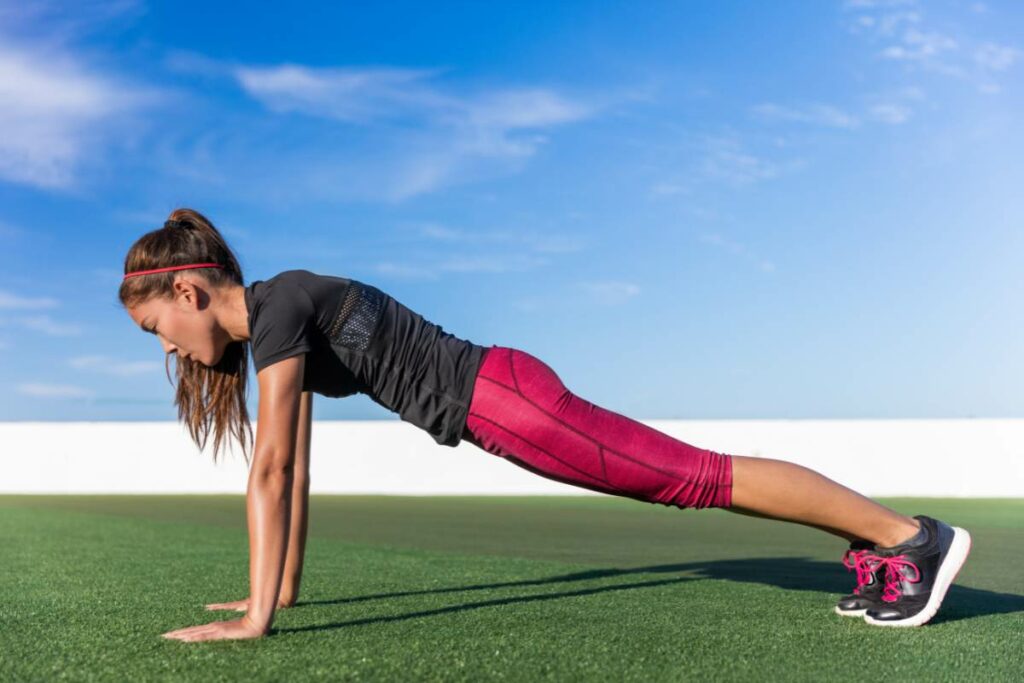
- Muscles Engaged: This is a full-core exercise, targeting the rectus abdominis, transverse abdominis, and the internal and external obliques. It also engages the erector spinae to a lesser degree.
- How-to: Position yourself in a push-up position but hold yourself up using your forearms and toes. Keep your body in a straight line from head to heels, engaging your core to prevent your hips from sagging.
Side Plank
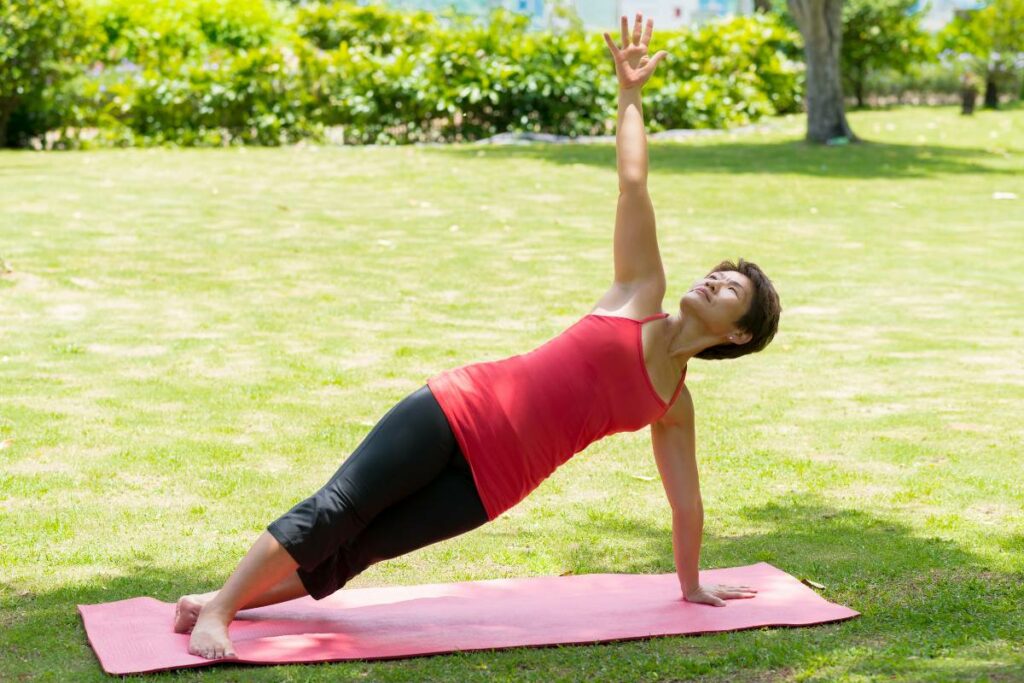
- Muscles Engaged: Primarily targets the obliques, while also engaging the rectus abdominis and transverse abdominis for stabilization.
- How-to: Lie on your side with your legs straight, prop yourself up with your forearm, and lift your hips until your body forms a straight line from head to feet. Hold this position, then switch sides.
Bicycle Crunches
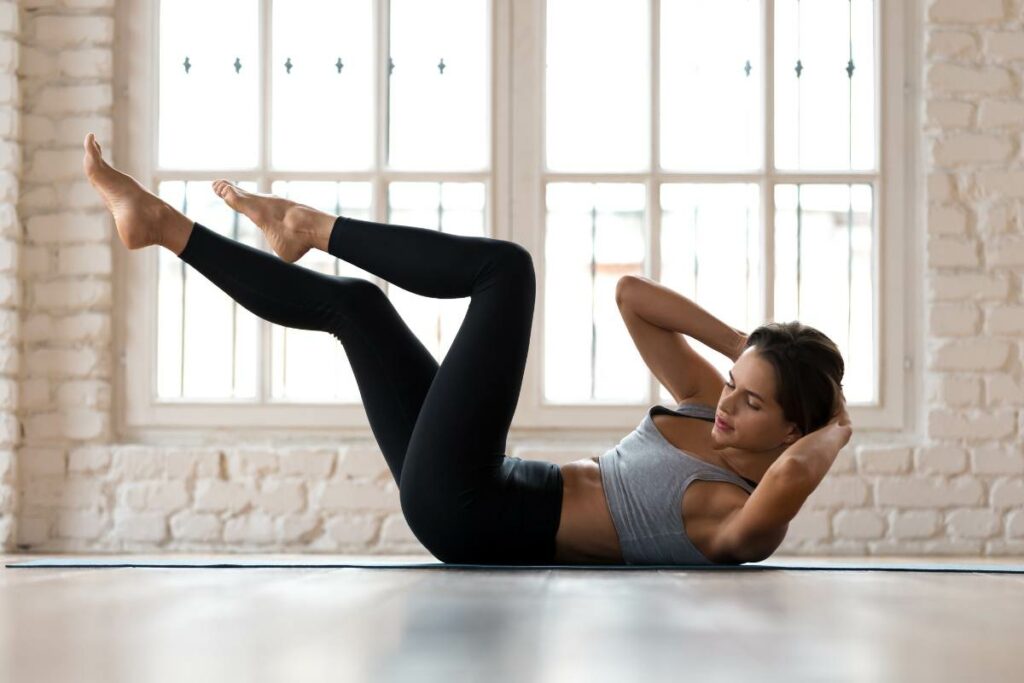
- Muscles Engaged: Excellent for targeting the rectus abdominis and obliques.
- How-to: Lie on your back with your hands behind your head, knees bent, and feet lifted off the ground. Bring your right elbow towards your left knee, then switch sides, pedaling your legs as if you were riding a bicycle.
Russian Twists

- Muscles Engaged: Focuses on the obliques, with secondary engagement of the rectus abdominis and transverse abdominis.
- How-to: Sit on the floor with your knees bent, lean back slightly, and twist your torso from side to side. For an added challenge, hold a weight or medicine ball as you twist.
Leg Raises
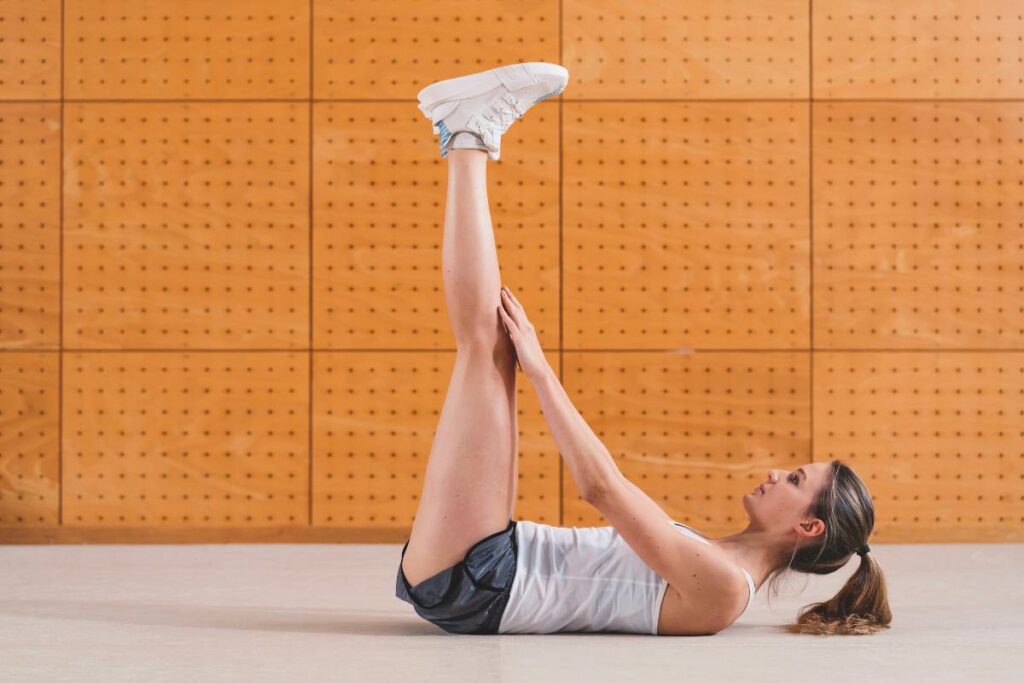
- Muscles Engaged: Primarily targets the lower part of the rectus abdominis and the transverse abdominis.
- How-to: Lie flat on your back, legs straight, then lift your legs to a 90-degree angle and slowly lower them back down without touching the floor.
Mountain Climbers
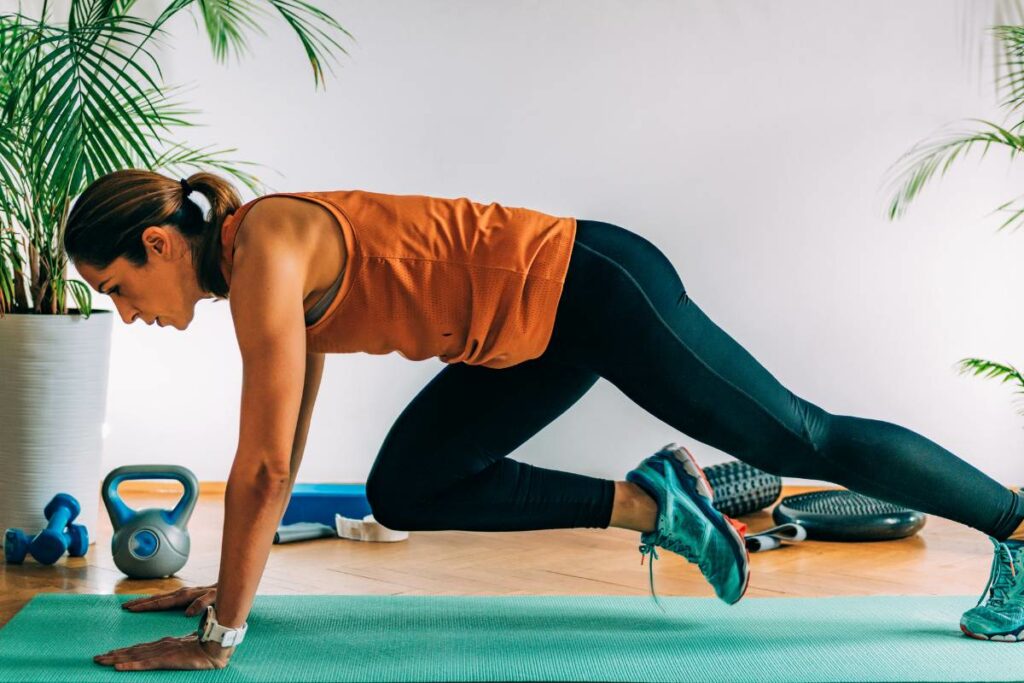
- Muscles Engaged: This dynamic exercise engages the whole core, with particular emphasis on the rectus abdominis and obliques.
- How-to: Start in a high plank position. Quickly draw one knee at a time towards your chest, alternating legs as if running in place.
Flutter Kicks
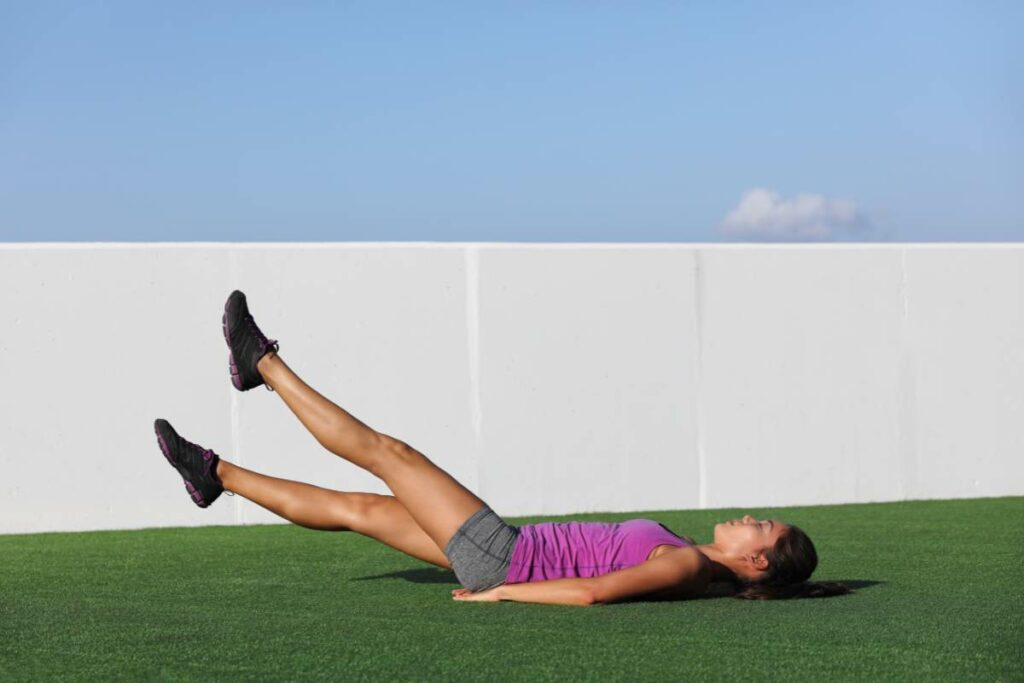
- Muscles Engaged: Targets the lower abdominal muscles, particularly the rectus abdominis and transverse abdominis.
- How-to: Lie on your back with your legs extended and hands under your buttocks for support. Lift your heels off the ground and make small, rapid vertical kicks.
Dead Bug
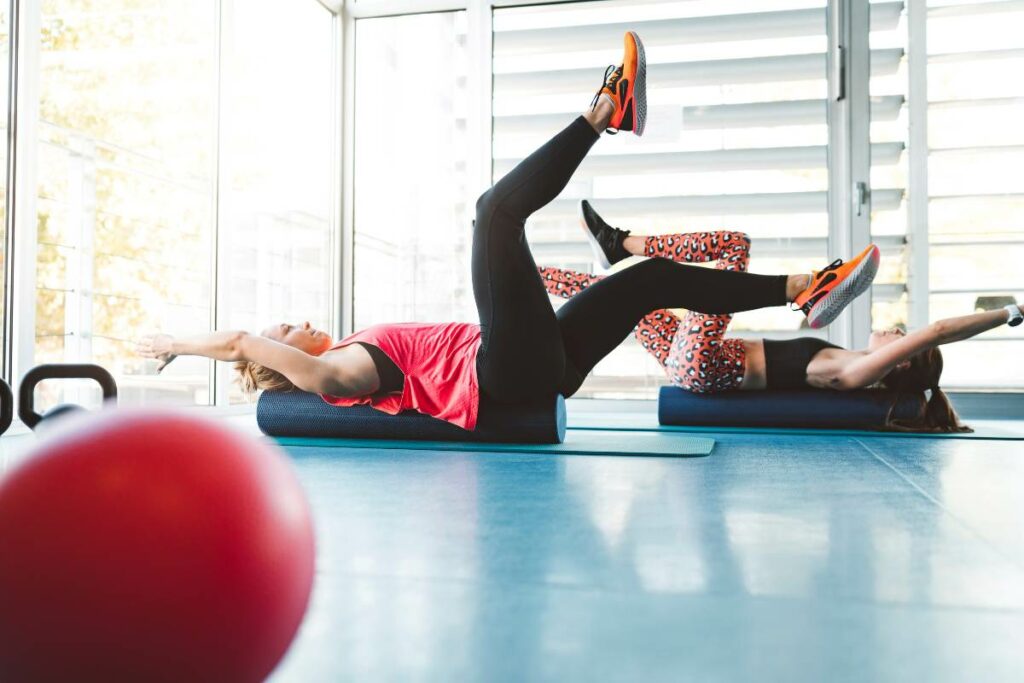
- Muscles Engaged: Primarily targets the transverse abdominis with additional engagement of the rectus abdominis and stability from the obliques.
- How-to: Lie on your back with your arms extended towards the ceiling and legs raised and bent at 90 degrees. Lower opposite arm and leg towards the floor slowly, then return to the starting position and repeat with the other arm and leg.
Hollow Hold
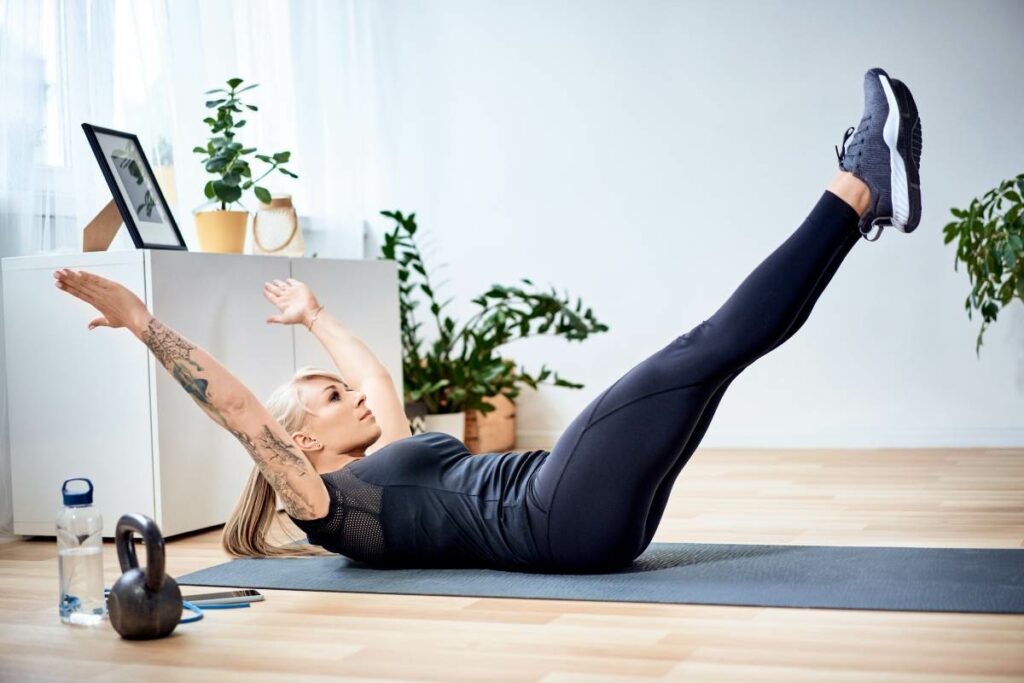
- Muscles Engaged: Targets the rectus abdominis and transverse abdominis prominently, with the obliques providing stability.
- How-to: Lie on your back and extend your arms behind your head and your legs in front of you, then lift your arms, head, shoulder blades, and legs off the ground, holding a “hollow” position.
Back Extensions
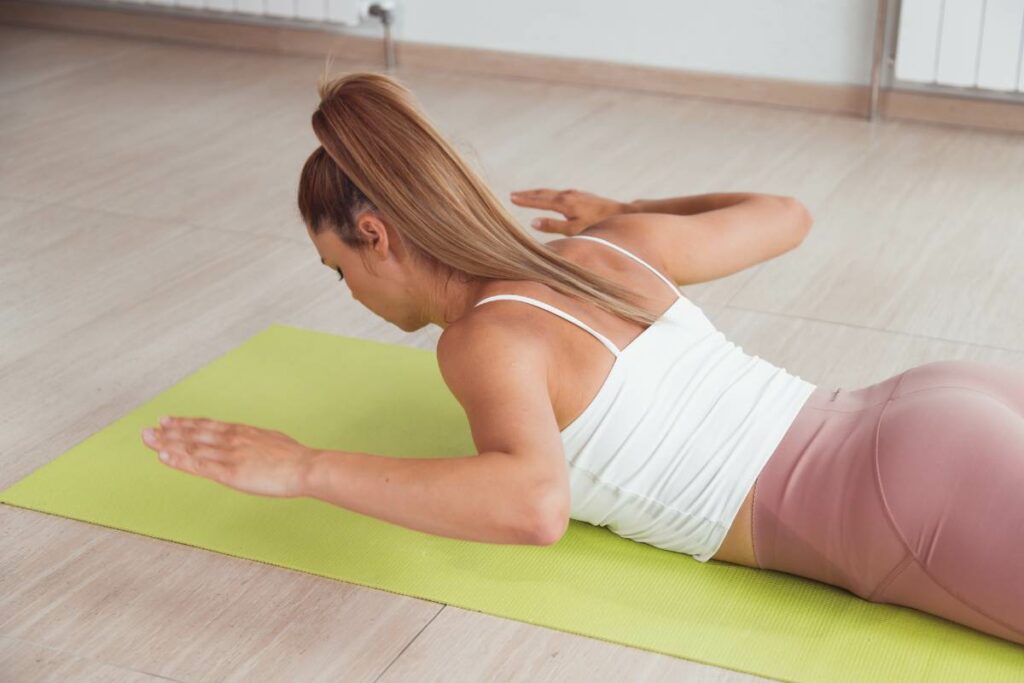
- Muscles Engaged: Specifically strengthens the erector spinae along the spine, with secondary engagement of the glutes and hamstrings.
- How-to: Lie face down on the ground or a stability ball, with arms and legs extended. Lift your chest and legs off the ground, squeezing your glutes and back, then lower back down.
Bird Dog
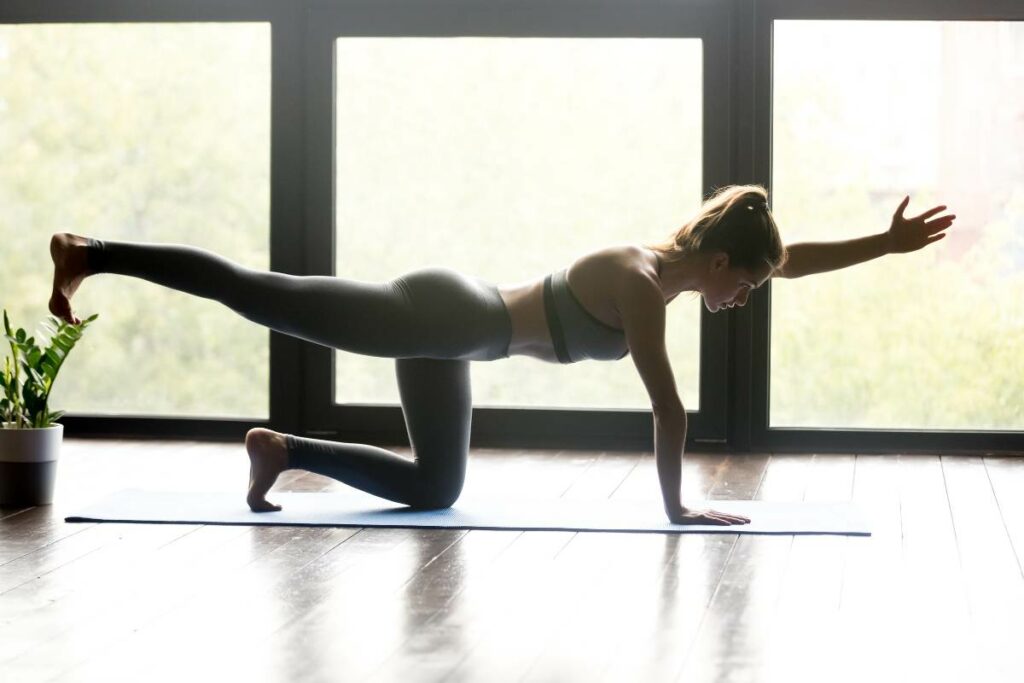
- Muscles Engaged: This exercise engages the entire core, with a focus on the transverse abdominis and erector spinae, while also improving balance and stability.
- How-to: Start on all fours, extend one arm forward and the opposite leg back, hold for a few seconds, then switch sides.
Incorporating these exercises into your routine will ensure that all areas of your core are effectively engaged, leading to improved strength, stability, and appearance.
Remember to perform these exercises with proper form to maximize benefits and minimize the risk of injury.
Consistency is Key
The secret sauce to achieving that dream core is consistency. Make these exercises a regular part of your routine, aiming for 3-4 times a week.
Feel free to mix up the exercises to keep your workouts fresh and challenging.
Beyond Exercise – Tips for a Holistic Approach
Sculpting a strong core goes beyond the mat. Remember to drink plenty of water, snag 7-9 hours of sleep nightly, and fuel your body with a balanced, whole-food diet.
These habits will not only aid in slimming down your waist but also in elevating your overall health and energy levels.
You’ve Got This!
With a mix of dedication, the right exercises, and healthy lifestyle choices, you’re well on your way. Celebrate every step forward, and remember, the most impressive progress often happens when you’re having fun.
For those looking to take their health and weight loss efforts a step further, the 21-Day Fat Loss Challenge presents an intriguing opportunity.

This program is crafted to kickstart your weight loss journey, reshape your eating habits, and positively influence your overall well-being.
It blends diet guidance, exercise tips, and motivational support, creating a comprehensive approach to weight loss.
Discover how the 21-Day Fat Loss Challenge can align with your health aspirations and provide a structured path to achieving your goals. Explore the details and join the challenge here: 21-Day Fat Loss Challenge.
